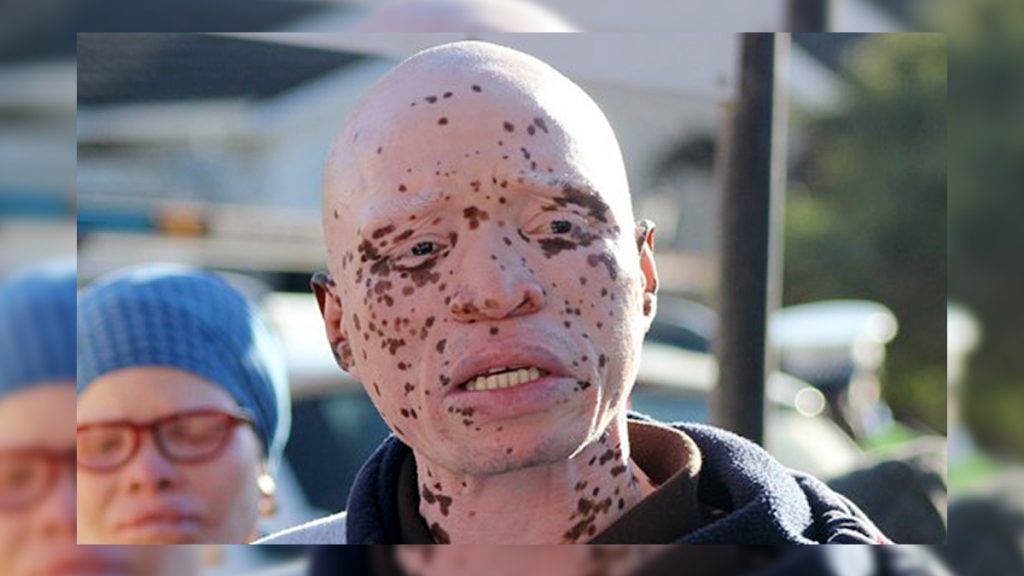Position Paper on Independence of Botswana by Albinism Society of Botswana
While Botswana is dubbed a middle-income country, as well as multi-party or liberal democracy, it is also an inefficient central state, the main features of which have been identified and praised by a cartel of BDP’s and observers. Botswana is furthermore not run on meritocracy but rather on a ruling party patronage network where key positions are reserved for party activists and functionaries.
For decades Botswana as one of the leading producers of diamonds but they did not distribute the wealth of diamonds accordingly, instead De Beers who are partners have gained more than the state itself. The political elite of the ruling BDP have never showed any skillful negotiating against trading partners, especially the DeBeers, this remains part of a well-orchestrated strategy to steal our diamonds.
Corruption and Mismanagement unsurpassed
With Botswana’s culture and politics of elite predominance, and with the upkeep of a growth economy, corruption and mis-management are unlikely to be eradicated. They might be controlled and partial, but only if serious steps are taken to strengthen the morality and heighten the fiscal and administrative discipline of the rulers. This is a government that has crumbled since president Masire’s era. This mafia started to manifest malpractices under president Masire, Mogae, Ian Khama and current one Masisi. Too bad government was perhaps shielded by the hierarchies and inequalities that perennate the society and authority’s assumption of difference easily stifled public questioning. Aspects of the present problems over land-sales, housing, unemployment, the abuse of government funds have quite evidently germinated over a period of some 25 – 55 years.
The definition of independence is freedom from the costrel of influence of others.
As alleged under president Khama, Isaac Kgosi and his company used public funds to enrich themselves. What is astounding is how the statutory institutions which are the Directorate of Intelligent Services (DIS), Directorate of Corruption and Economic Crime (DCEC) and the (Department of Public Prosecutions) DPP continue to turn a blind eye to the allegations against Mr. Kgosi. NPF. We witness the similar trend under the current leadership of Masisi and DIS of Peter Magosi, of late, a transaction involving purchase of the luxurious Tautona Lodge that was owned by a former BDP Minister at government expense and acquisition of a piece of land in the Okavango Delta.
The study commissioned by UNDP, in an attempt to assist Botswana in understanding the drivers of inequality beyond income and to assist Botswana to achieve its SDG 10 targets revealed that, Botswana remains one of the world’s most unequal country. The level of inequality in Botswana
is the world’s third highest after South Africa and Seychelles.
According to World Bank, from independence in 1966 to the late 1990s Botswana was one of the world’s fastest-growing economies, comparable only to China, with average annual GDP growth above 10 percent. According to these international economic measures, Botswana has experienced long term economic growth overall. Those same measures, however also report that the growth has been very concentrated among the country’s financial elite. The economic disparity between the large percentage of people who live in rural areas and those in the capital city Gaborone is reportedly one of the largest in the world.
In a nutshell, economic inequality refers to the difference between those with the most wealth and those with the least in a country. The most widely used measure of inequality is called the Gini Coefficient, which is a number between 0 and 1. The highest rates of poverty can be observed among young women and youth living in rural areas. Young Batswana constitute the majority of the poor. On average 72% of the youth population in Botswana live on less than $2 per day.
The high inequality levels could possibly be attributed to the fact that the mineral sector which drives the economy is highly capital intensive and employs a very small proportion of the labour force yet this sector accounts for more than one-third of GDP, about 70 – 80% of export earnings and almost half of government revenue.
The World Bank study acknowledges that on the overall, Botswana employment figures have not lived up to the exceptional economic growth as compared to other middle-income countries, employment lags behind. Inequality is understood to rise as people move from low productive agriculture to more productive industrial sectors. These industrial sectors are characterized by higher average income and less uniform wages. As a society matures and becomes richer, the urban rural gap is reduced and the provision of old age pensions, unemployment benefits and other social transfer lower inequality.
Creative Arts and Alcohol Industry
The entertainment industry is on its knees and there is no let-off for the creative arts as yet. The alcohol industry is on its knees and thousands of livelihoods have been completely wiped off while President Masisi and his company are enjoying themselves.
Chairperson
Human Rights Activist
Seargent Yellowman Kgosietsile
